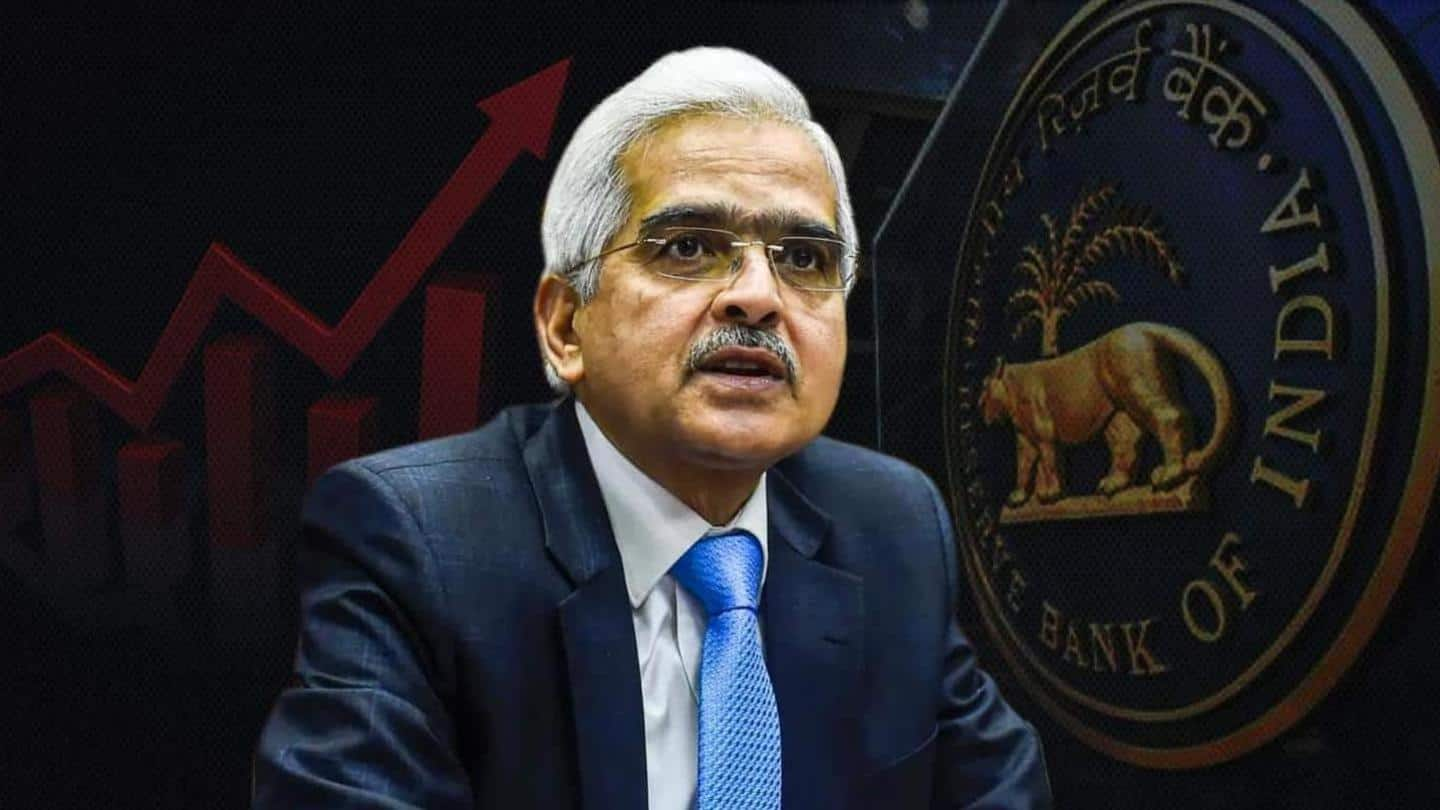
RBI hikes repo rate by 40 bps to 4.4%
What's the story
In its first rate hike since August 2018, the Reserve Bank of India (RBI) on Wednesday raised the benchmark lending rate by 40 basis points to 4.4%.
RBI Governor Shaktikanta Das said this was done in an attempt to contain inflation.
This came after an unscheduled Monetary Policy Committee (MPC) meeting, with all members voting for a rate hike while maintaining an accommodative stance.
Context
Why does this story matter?
The MPC's decision to increase the key lending rate reversed the May 2020 interest rate cut—owing to the COVID-19 pandemic—by an equal amount.
The RBI last revised the short-term lending rate on May 22, 2020, to 4%—an all-time low—to buck up demand.
With the RBI's latest "off-cycle" announcement, banks will increase interest rates on loans making home loans, personal loans, and auto loans costlier.
CRR hiked
Inflation print in April likely to be high: RBI Governor
Notably, inflation remained above the target zone of 6% in the three months starting January.
Meanwhile, the retail inflation print for March also stood at 6.9%. According to Shaktikanta Das, the inflation print in April is likely to be high as well, PTI reported.
The MPC also hiked the cash reserve ratio by 50 basis points to 4.50% effective May 21.
Inflation
Commodity, financial market volatility becoming more acute: Das
Meanwhile, Das noted shortages and volatility in commodity and financial markets were becoming more acute.
"There is a collateral risk that inflation remains elevated at this level for too long and can de-anchor expectations," he stated.
"We have deployed both conventional and unconventional tools to support growth," the RBI Governor added.
The repo rate was increased for strengthening and consolidating medium-term economic growth prospects.
Better tomorrow
Geopolitical tensions pushing inflation up: RBI
The global economic recovery was losing momentum while geopolitical tensions were flaring inflation up, Das said.
He asserted that a calibrated withdrawal of COVID-19 pandemic-related measures was the need of the hour.
In his concluding statement, Das said, "I am an internal optimist. My colleagues in the Reserve Bank and I strongly believe that our chosen path will guide us to a better tomorrow."
EMI, loans
What does RBI's announcement mean for common man?
With the central bank increasing the repo rate, banks will in turn hike interest rates on loans.
This means home, personal, and auto loans, among others, are set to become expensive.
Existing borrowers will also have to bear the brunt as banks and other financial institutions will soon start raising interest rates on such loans, which means EMIs will also go up.
Markets
Sensex tanks over 1,300 points, Nifty nearly 400 points
After the RBI's announcement, Sensex tanked over 1,300 points, whereas Nifty shed nearly 400 points.
Bajaj Finserv, Bajaj Finance, Reliance Industries, Titan, Hindustan Unilever, HDFC Bank, Sun Pharma, Dr.Reddy's, and Bharti Airtel were the major losers.
PowerGrid and NTPC managed to hold gains.
The BSE Consumer Durables index plunged 4%, while healthcare, metals, power, realty, auto, Bankex, and capital goods indices were also down.
Next meeting
Monetary Policy Committee meetings
The RBI's announcement comes after the MPC held an "off-cycle" meeting from Monday to Wednesday.
Meanwhile, the RBI's central board approved Rajiv Ranjan's nomination as an MPC member—replacing Mridul Saggar who retired on Saturday—on Monday.
Notably, the MPC—in its last meeting—had decided to stick to an accommodative stance "while focusing on withdrawal of accommodation."
The next monetary policy meeting is scheduled for June 6-8.